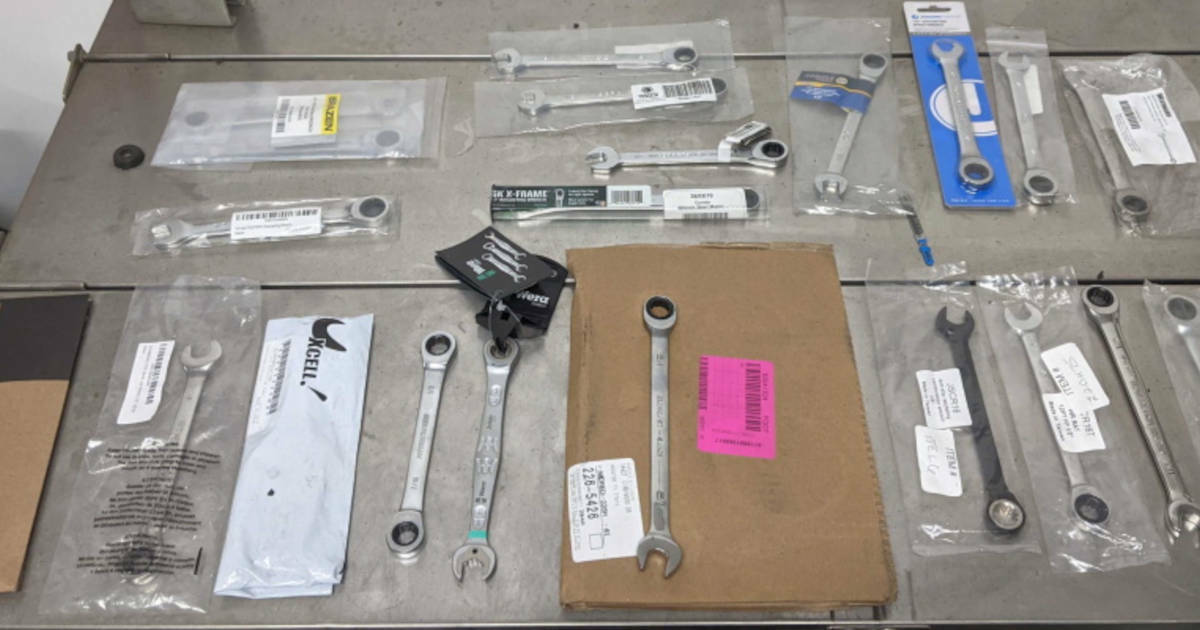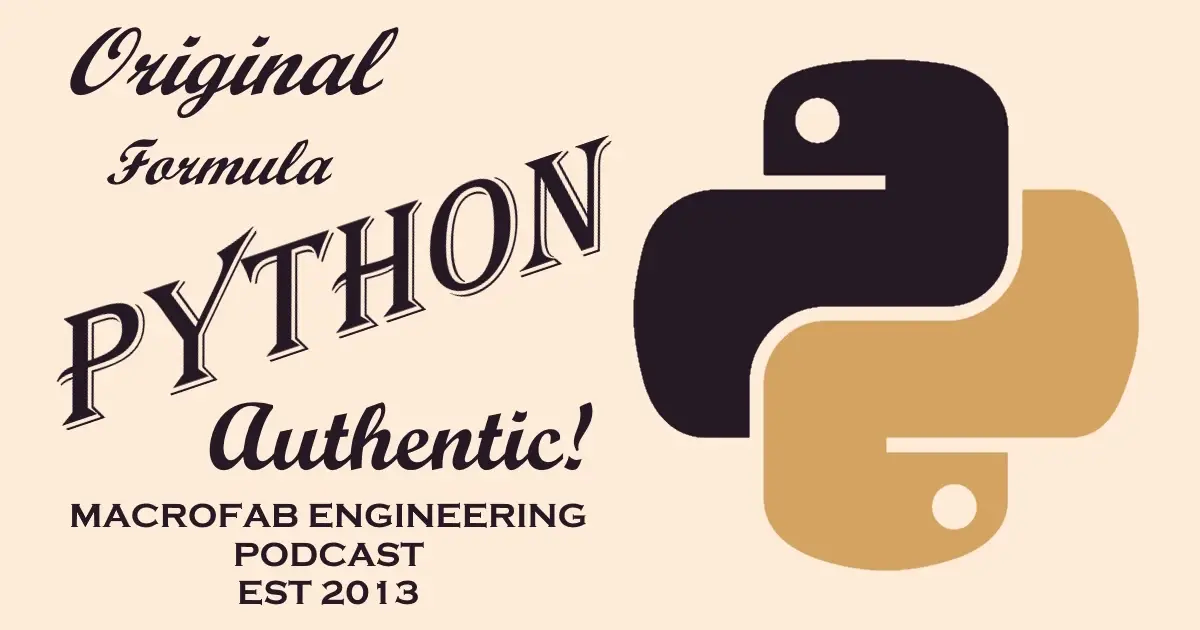Related Topics
Remote Ownership
Tariffs hike hits electronics! Hear Parker analyze cost impact & debate chip kill switch ethics with Stephen. Plus, Parker's Python invoice hack!
From Zero to Hero in Python
Python software language, more and more electrical engineering jobs are requiring this as a skill set but is it just snake oil?
Estimating Effort
Why is estimating a projects completion time feel like it takes more work then the actual project? Estimating Project Time, the quest of management.
Other Resources
Circuit Break Podcast
Webinars
Videos
Tour MacroFab's ITAR-Compliant Facility
November 4, 2022, Episode #351
Python Demo for Extra Life API
- Stream Date: November 5th, 2022
- Python to OBS functioning!
- Websockets. What are they?
- HTTP is unidirectional where the client sends the request and the server sends the response
- Websocket data is continuously pushed/transmitted into the same connection
- OBS has a built in local server that you can establish a websocket with another application
- Python module obswebsocket
- Provides a wrapper for all the OBS websocket functions
- Can basically control anything in OBS it seems
- Documentation is a bit lacking and module is out of date
- Build animations and transitions in OBS and modify them with the python connection
- Building a donation progress tracker?
Signal switching tips
- Maneuvering signals around your design
- Methods of switching on and off portions of your circuit
- Series
- Shunt
- Series-shunt
- Relays
- DG series of analog switches
- Virtually every configuration
- single, dual, quad SPSTs and SPDTs, 4:1 and 8:1 multiplexers
- Many have separate control and signal voltage inputs
Estimating project time
- Follow up from slack
- Josh Pieper – Doomcheck
- Takes in a text file and uses probability distribution to estimate timing for projects
About the Hosts

Parker Dillmann
Parker is an Electrical Engineer with backgrounds in Embedded System Design and Digital Signal Processing. He got his start in 2005 by hacking Nintendo consoles into portable gaming units. The following year he designed and produced an Atari 2600 video mod to allow the Atari to display a crisp, RF fuzz free picture on newer TVs. Over a thousand Atari video mods where produced by Parker from 2006 to 2011 and the mod is still made by other enthusiasts in the Atari community.
In 2006, Parker enrolled at The University of Texas at Austin as a Petroleum Engineer. After realizing electronics was his passion he switched majors in 2007 to Electrical and Computer Engineering. Following his previous background in making the Atari 2600 video mod, Parker decided to take more board layout classes and circuit design classes. Other areas of study include robotics, microcontroller theory and design, FPGA development with VHDL and Verilog, and image and signal processing with DSPs. In 2010, Parker won a Ti sponsored Launchpad programming and design contest that was held by the IEEE CS chapter at the University. Parker graduated with a BS in Electrical and Computer Engineering in the Spring of 2012.
In the Summer of 2012, Parker was hired on as an Electrical Engineer at Dynamic Perception to design and prototype new electronic products. Here, Parker learned about full product development cycles and honed his board layout skills. Seeing the difficulties in managing operations and FCC/CE compliance testing, Parker thought there had to be a better way for small electronic companies to get their product out in customer's hands.
Parker also runs the blog, longhornengineer.com, where he posts his personal projects, technical guides, and appnotes about board layout design and components.

Stephen Kraig
Stephen Kraig is a component engineer working in the aerospace industry. He has applied his electrical engineering knowledge in a variety of contexts previously, including oil and gas, contract manufacturing, audio electronic repair, and synthesizer design. A graduate of Texas A&M, Stephen has lived his adult life in the Houston, TX, and Denver, CO, areas.
Stephen has never said no to a project. From building guitar amps (starting when he was 17) to designing and building his own CNC table to fine-tuning the mineral composition of the water he uses to brew beer, he thrives on testing, experimentation, and problem-solving. Tune into the podcast to learn more about the wacky stuff Stephen gets up to.
Special thanks to whixr over at Tymkrs for the intro and outro!
Related Podcasts

Necrobiotic Synthesizers
Our Spider-sense is tingling... OH that is actually a man-made zombie spider crawling up my leg. Who thought that would be a good idea? WHO!?!

Remote Ownership
Tariffs hike hits electronics! Hear Parker analyze cost impact & debate chip kill switch ethics with Stephen. Plus, Parker's Python invoice hack!

Work to Automate the Work
On this episode, Parker discusses his current adventure in testing and qualifying ratcheting wrenches and Stephen finally learns the magic of python!

Estimating Effort
Why is estimating a projects completion time feel like it takes more work then the actual project? Estimating Project Time, the quest of management.

Let The Robots Do It
Is grinding out math problems just busy work? Is the current state of Math class curriculum hampering the real life deployment of engineering skills?

From Zero to Hero in Python
Python software language, more and more electrical engineering jobs are requiring this as a skill set but is it just snake oil?
About MacroFab
MacroFab offers comprehensive manufacturing solutions, from your smallest prototyping orders to your largest production needs. Our factory network locations are strategically located across North America, ensuring that we have the flexibility to provide capacity when and where you need it most.
Experience the future of EMS manufacturing with our state-of-the-art technology platform and cutting-edge digital supply chain solutions. At MacroFab, we ensure that your electronics are produced faster, more efficiently, and with fewer logistic problems than ever before.
Take advantage of AI-enabled sourcing opportunities and employ expert teams who are connected through a user-friendly technology platform. Discover how streamlined electronics manufacturing can benefit your business by contacting us today.